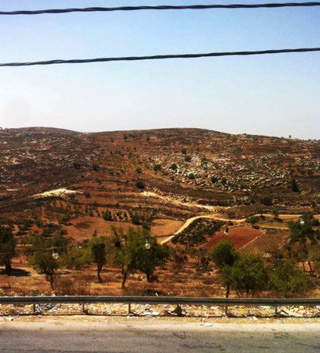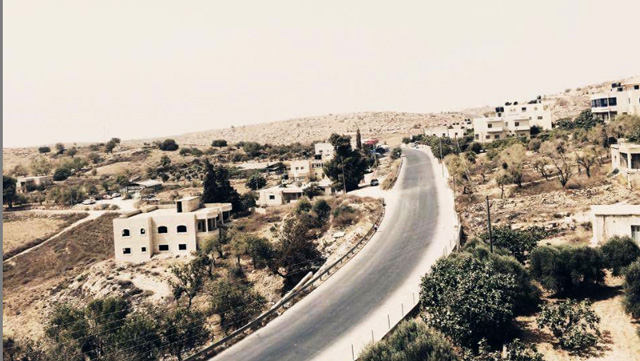Deir Jrir
By Akram Omar
As a person born and raised in America, I found it easy to take for granted the quality of life we have in the United States. Having a comfortable job, aspiring to master a craft, purchasing a home — these are some of the “struggles” we face. We see these things as long-term goals and potential realities, but often don’t realize that they aren’t even dreams for others.
We define hardship as being below the poverty line or living paycheck to paycheck, whereas in areas outside the United States that term takes on a whole new meaning. Over the summer, I had the opportunity to visit the country of Palestine, and without a doubt the experience gave me a completely different perspective on what a “tough life” is. I experienced first-hand what it’s like to live in a third world country and I developed a different perspective on the world we live in.
In Palestine, some of life’s basic necessities are lacking. Due to the occupation of Palestinian territories by Israel, the water supply for Palestinians in the West Bank area is cut off on a weekly basis. Each week for about two to three days there is no water available in Deir Jrir, which was the town I stayed in. The water would run normally from Mondays to Wednesdays, then starting from around Thursday morning it would get cut off until the following Monday.

When the water was cut off, residents of Deir Jrir were not able to shower, do laundry, clean the house, or even wash their hands. The only available water had to be bought from local stores which added to the financial struggles many Palestinians already face. It was a consistent, not occasional, problem. Palestinians deal with this issue every week whether it is during school, winter, or summer.
I don’t think I could have ever truly understood the difficulties that not having clean water would bring until I actually experienced it. In the U.S., having access to clean water is a given, regardless of economic class. We never have to worry about not being able to shower after a long day at work, or not having water to cook for the kids once they come home from school, but for Palestinians it is simply the norm.
Another thing that we take for granted here in America, yet people in Palestine can’t, is electricity. For the most part the lights are on and the oven and refrigerators work, but things get difficult when the weather gets cold. Last year a snowstorm hit the West Bank leaving many Palestinians without any heat. Families were forced to sleep with layers of clothing to keep from freezing. Unlike here in the U.S., there was no daily sanitation crew ready to clear the streets of the snow left from the storm. Often residents were forced to clean the streets themselves, preventing them from getting to work or school.
During my time there in the summer, there were a couple days when the heat was extremely difficult to bear as well. Air conditioning for most of the town was non-existent and for the few that did have an air conditioner, the cost of turning it on made them very hesitant. People were left with the hope that the weather would cool down after sunset. Just this past summer the country of Pakistan was hit with a heat wave leaving thousands of Pakistanis dead. Imagine the damage such a tragic event would do to Palestinians living in the conditions they are in.
Furthermore the conditions in Deir Jrir are nothing compared to those in the Gaza Strip. Gaza is a region of Palestine that borders the southwest part of Egypt. The area is occupied by Israel, giving it control of Gaza’s air and maritime space, six of the seven Gaza land crossings, and even the right to reenter Gaza at will through regular military incursions. Israel has made Gaza dependent on it for trade, water, sewage, electricity, currency, and permits to enter and leave the territory.
In the summer of 2014, Israel launched a military operation that resulted in the deaths of over 2,100 people, the vast majority of them Gazans. The United Nations reported that the most of Palestinian deaths were civilian. Imagine living under an illegal occupation like the one in Gaza. Imagine what kind of physical and psychological effects such living conditions can bring to a group of people.



